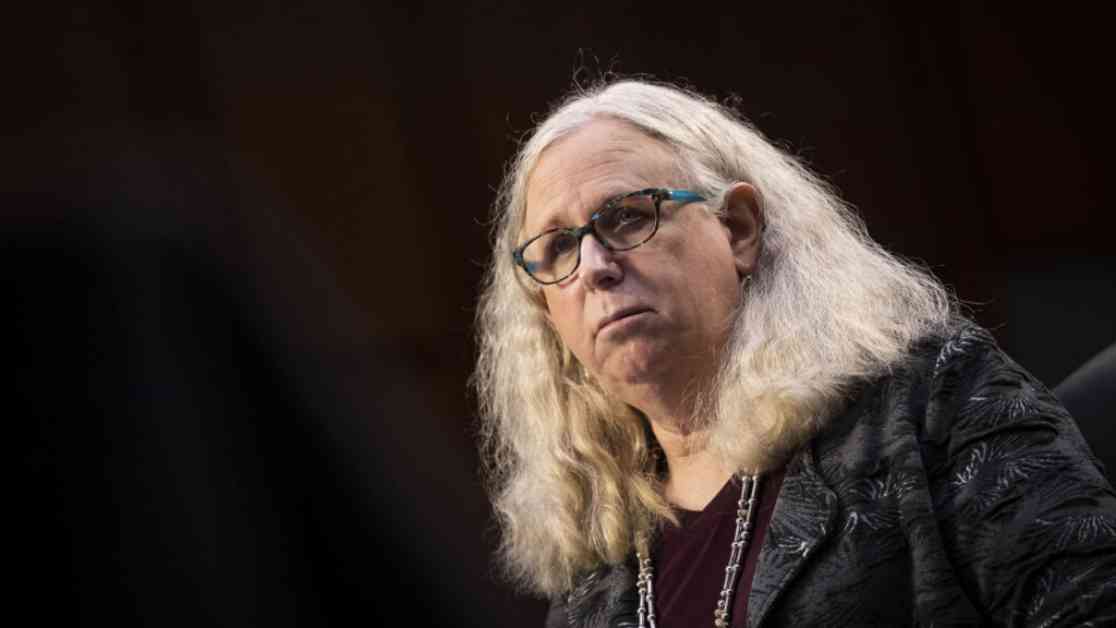Climate Change Impact on Blood Supply: Interview with HHS’ Rachel Levine
This summer, the American Red Cross declared an emergency blood shortage in the U.S., highlighting the ongoing challenges in maintaining a steady and predictable blood supply essential to public health. While seasonal patterns of decreased blood donations are expected during the summer and winter holidays, climate change has also been identified as a significant factor disrupting the national blood supply. Extreme heat and worsening storms in certain regions have been keeping people away from blood banks, exacerbating the shortage crisis.
Adm. Rachel Levine, the assistant secretary for health at the Department of Health and Human Services (HHS), emphasized the continued shortage of blood supply in the country, with many community blood centers operating with just a one-to-two-day supply of blood. Some centers even had less than a day’s worth, far below the necessary three days’ supply to meet normal operating demands. Levine stressed the urgent need for more blood donations to address the shortage and ensure an adequate supply of red blood cells, platelets, and plasma.
In an effort to raise awareness of the importance of blood donation and the risks posed by climate change to public health, Levine’s office has been actively working to address these issues. However, there have been criticisms that HHS, particularly the Office of Climate Change and Health Equity under Levine’s purview, has not done enough to protect public health in the face of climate change.
Interview with Rachel Levine
The American Red Cross announced a blood shortage this summer, which was particularly acute compared to normal seasonal trends. Levine highlighted the challenges faced by the nation’s blood supply, especially in the aftermath of the Covid-19 pandemic. A reliable blood supply is crucial for treating acute and chronic life-threatening conditions, with someone in the U.S. needing blood every two seconds.
Climate change has been identified as a significant factor affecting blood shortages, with extreme heat discouraging people from donating blood. Levine shared insights from her interactions with migrant farm workers in Orlando, Florida, who endure extreme heat on farms, leading to health issues like dehydration and kidney problems. Addressing these health impacts requires collaborative efforts across various sectors to develop resilience and mitigate the effects of climate change.
Office of Climate Change and Health Equity
The Office of Climate Change and Health Equity (OCCHE) within HHS plays a vital role in addressing the impacts of climate change on health. Despite being unfunded, OCCHE collaborates with other agencies like the Centers for Disease Control and Prevention, the Environmental Protection Agency, and the Department of Labor to work on preparedness and mitigation strategies. The health sector’s significant carbon emissions also necessitate efforts to develop resilience and decarbonize to combat climate change.
Responding to criticisms of inadequate climate policy ambitions, Levine defended the agency’s approach, emphasizing the focus on incentives rather than punitive measures to address climate-related challenges. While OCCHE is currently unfunded, plans are in place to secure funding in future budgets to further enhance their work in addressing the health impacts of climate change.
Blood Donation Guidelines and Gender-Affirming Care
The Food and Drug Administration’s updated guidelines for blood donations have received positive support from the blood donation community, allowing more gay men and queer individuals in monogamous relationships to donate blood. While the effects on donation rates among different populations are yet to be determined, the move has been hailed as a necessary step towards inclusivity and accessibility in blood donation practices.
In the realm of gender-affirming care, efforts to expand anti-discrimination protections and ensure access to care for trans individuals face legal and political challenges. Despite setbacks in implementing these protections, Levine remains optimistic about the resilience and progress in addressing the health needs of trans youth and individuals seeking gender-affirming care.
Concluding Thoughts
As a pediatrician and advocate for health equity, Levine emphasizes the importance of evidence-based, standard-of-care approaches in providing gender-affirming care to youth. She underscores the critical role of specialized medical teams in delivering comprehensive care to individuals with gender issues, highlighting the need to remove legal barriers that hinder access to necessary healthcare services.
In the face of ongoing challenges related to blood shortages, climate change impacts, and access to gender-affirming care, Levine remains committed to advocating for public health and addressing the broader social determinants that influence health outcomes. Collaborative efforts across sectors and continued support for evidence-based healthcare practices are essential in ensuring equitable access to care for all individuals, regardless of their gender identity or health needs.


















